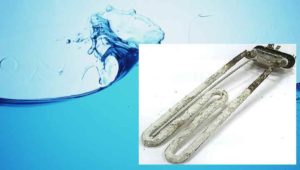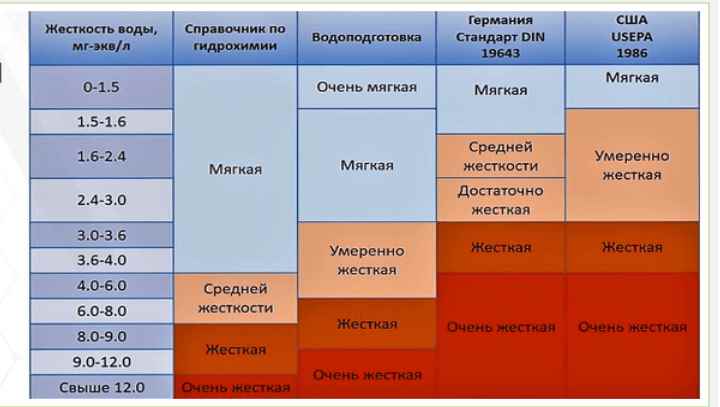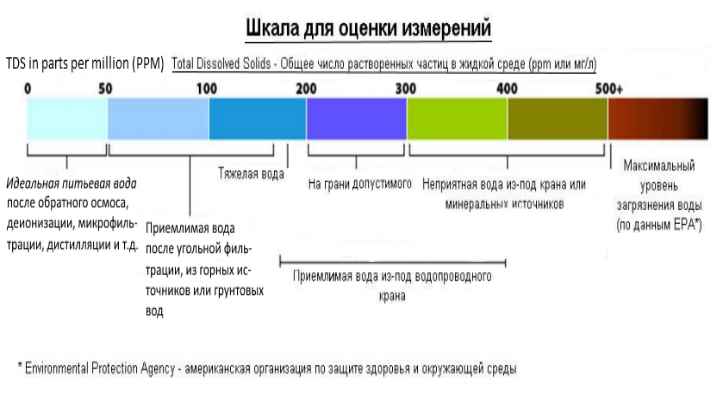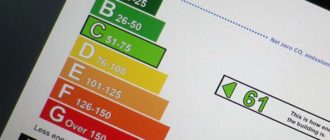 What is water hardness? Water hardness - is a set of general information about the properties of water related to the quantitative content of salts, heavy metals and various impurities in it. Looking at the types of water hardness, you can understand that it is divided into 3 types.
What is water hardness? Water hardness - is a set of general information about the properties of water related to the quantitative content of salts, heavy metals and various impurities in it. Looking at the types of water hardness, you can understand that it is divided into 3 types.
The first type is carbonate hardness. It represents the quantitative content of magnesium, calcium and iron salts. It can be eliminated with normal boiling.
- The second type is non-carbonate hardness
- What affects hard water?
- The optimum hardness parameters
- Average water hardness values
- How often should we test your water hardness?
- Changes in Water Hardness over the Year
- Which company is responsible for water quality in the capital city?
- How do I determine the hardness of my own water?
The second type is non-carbonate hardness.
This hardness means the presence of salts of strong acids in the water and it is much harder to get rid of it. And completes the three is the so-called single water hardness. To find this value, you need to add the carbonate hardness values with non-carbonate hardness values. Usually, this total value is used in calculations and determining the type of water.
What affects hard water?
Everybody knows that a person needs to drink about 2 liters of water per day, but in constant interaction with hard water, people have begun to notice that it adversely affects their health. This issue is very acute in big cities, because more people live there.
It used to be believed that simply boiling tap water would suffice, and the negative properties of hard water would lose their power. But more and more often people defiantly express distrust in the direction of local housing and communal services about the quality of water, because they notice negative effects from its side.
How does such water affect the human body? First, the use of hard water leads to the formation of kidney stones. This is caused by the fact that due to impurities in water, the excretory system has to filter them independently. Because of this, the salt balance of the body is disturbed, that is, the salts do not have time to leave the body with the urine.
Secondly, this water accelerates the aging process, as it strongly dries the skin, depriving it of the necessary moisture. Also, because of the hard water are frequent cases of rashes and irritations. And the last point is that the hair and nails suffer from this liquid.
In addition to the negative impact on human health, our washing machines, dishwashers and sinks also suffer. Considering washing machines, various detergents are less effective in hard water. They do not foam well and do not wash dirt as well. Also, because of this water, salts accumulate on the machine drum, which leads to a rapid breakdown.
The optimal hardness parameters
If you take water hardness and measuring units - at the moment in Russia hardness parameters are less strict than in Europe. Water with 3,6-4 mg-eqv/l is considered hard water in Europe and classified as soft water here. We consider soft water as soft between 0 and 4 mg-eq/l.
Water with medium hardness is called liquid with values from 4 to 8 mg-eq/l. Hard water is considered to be 8 to 12 mg-eq/l. Anything more than 12 is very hard water.
Average water hardness values
Speaking about our capital, we can see that the hardness of tap water is on average 3-3.5 mg-eqv/l. In the Central District, the average hardness reading is 3.2. In the north of Moscow it is 3.5. In the south it is about 3.4. In the west and east is about 3.3. If you live and want to know more about the hardness of the water flowing from your tap, you can contact Mosvodokanal and ask them about it directly. They will be obliged to provide you with this information.
How often is the water hardness measured?
Usually, measurements are taken for each region separately. The frequency of measurements depends on the number of people in the area. If the region has less than 10,000 people, samples are taken once every two weeks. If the population is between 10,000 and 20,000, about 5 times in two weeks. In a region with a population of 100,000 or more, measurements are taken several times a day.
Changes in water hardness over the year
No reason why Mosvodokanal gives residents of the capital the right to find out the hardness of the tap water in their apartments at any time. The composition of water is inconstant, so it is worth keeping an eye on them all the time. There are many reasons why this happens, but noticeable changes occur when the season changes.
In winter, the water reaches its peak hardness. It is during this season that appliances that interact with water most often break down. During the spring season, the water flowing from the taps in the apartments softens a lot. This is caused by the fact that snow begins to melt in the spring. After it melts, it flows into reservoirs in the form of water. Water processing companies, pumping liquid from these reservoirs, after filtration send them directly to your home. In summer, the indicators almost do not change in any way. In the fall, due to heavy rains, the water is considered the softest.
Which company is responsible for water quality in the capital city?
Every Muscovite should know who is responsible for the water supplied to homes. Different organizations are responsible for cold and hot water. For cold water, you should contact Mosvodokanal, and for hot water contact the housing and utilities company your house is attached to.
The capital is divided into districts. Each district is served by a separate group of inspectors. Water is measured not only in houses, but also in various public places: in catering establishments, in shopping centers. In total the monitoring is conducted in about two hundred different points of the city.
How can I determine water hardness on my own?
If you can not go to the local water station, you can buy a special tester and just dip it into the water. By changing the color of the tester you can find out how hard the water is in your apartment.




